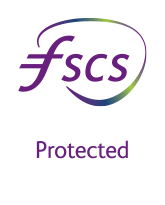October is known for darker mornings, cold crisp walks, and leaves turning from green to red – not to mention the trick-or-treaters that head out in costumes on Halloween night! Just because this month ends on a spooky note doesn’t mean your finances should scare you. Let us help you ensure this autumn is more treat than trick with an insight into some of the key scams to watch out for now.
Cost of living scams
Sadly, scams relating to inflation, tax, and energy bills are still prevalent, with criminals capitalising on people’s worries about rising prices.
Stay vigilant for letters, emails, texts or phone calls purporting to be from HMRC (who received over 130,000 reports of tax scams in the year preceding September 2023, your energy supplier, or the DVLA. Legitimate organisations will NOT ask you for your credit card details, personal information, or passwords.
Check out our dedicated cost of living scams article for further information.
Authorised push payment (APP) fraud
According to UK Finance, cases of APP fraud have risen by more than 20% compared to the same period last year. APP often sees criminals attempting to fool people into making payments they believe to be legitimate. When the victim realises their mistake, they may have unwittingly provided enough information to be impersonated.
There are two main types of APP fraud:
• Malicious payee, where someone is tricked into purchasing goods or a service that doesn’t exist
• Malicious re-direction, where a fraudster impersonates someone to get the victim to transfer money out of their bank account and into their own.
Elderly and vulnerable people can be particularly susceptible to this type of fraud, especially in cases where criminals impersonate officials like builders or solicitors.
Be wary of people asking you to transfer funds out of your savings into another account, especially via payment methods you wouldn’t usually expect. Check legitimacy by phoning the organisation via their official customer service numbers and checking any changes to payment details.
Remember, a genuine organisation won’t mind waiting – only scammers will rush or pressure you into deciding.
Social media account scams
Scams using social media platforms like Facebook and Instagram are on the rise. They can spread like wildfire across platforms and amongst friendship groups, as people are more likely to fall for something that has been (unwittingly) endorsed by someone they know.
Social media post scams often encourage people to click on a link to buy a product or view information on a third party website, but by doing so your personal information can be shared on. Doing this can also mean you accidentally share the link, sometimes with an added message, to your friends.
Make sure you look out for dodgy branding (profile pictures or names that don’t look quite right), suspicious-looking URLs and multiple instances of the exact same post. If you’re worried, always check with the company in question via official channels – don’t click any links.
Staying scam aware
For more information, check out our fraud and online security hub. You can also stay up-to-date with scam alerts via the Action Fraud website. If you are ever worried about your Newbury Building Society accounts, call us immediately on 01635 555700.



